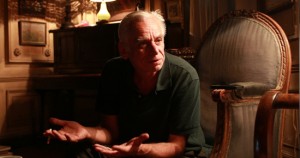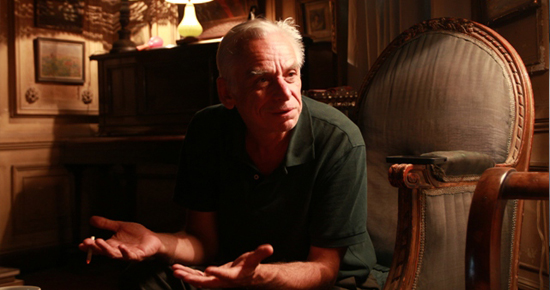
(Photo from Mad-solutions.com)
On Tuesday 14 May, the British Council in Agouza screened the documentary In Search of Oil and Sand, which follows the path of Mahmoud Sabit as he uncovers his family’s past. His father, Adel Sabit, was former Egyptian king Farouk’s second cousin. The film revolves around an old movie that Adel Sabit and Bulent Raouf, Princess Faiza’s husband, made several months before the 1952 coup d’état. The movie was called Oil and Sand, and has been in storage in Sabit’s family home in Garden City for more than 60 years.
The silent movie is about the search for oil by an American representative and the struggle between the Bedouins and the Americans to get hold of the oil. During the events of the old 8mm film an American girl gets kidnapped. The girl was played by Princess Nevin Abbas Halim, and during the filming of the latter documentary she was interviewed as the last surviving member of the film’s cast.
The documentary also gives insight into the last days leading up to the 1952 coup d’état. At the time, the film’s cast was in Alexandria on a fishing trip. They were unaware of what was happening until they saw bombers flying above the Montazah Palace.
In the documentary, Sabit interviewed Princess Nevin, who still lives in Alexandria. She discusses the movie and also the coup d’état. She comments on the state of the country two years afterwards and how the country went from an economically-booming state to being in debt. “The people who came to power had no idea how to run Egypt,” said Princess Nevin. When asked if she was sad about what happened she responded that she was not. She explained that one should not live in sadness and that what happened is in the past.
Mahmoud Sabit also commented on that period, saying that he lived in an era that does not exist anymore. The time of the royal family was under great scrutiny and it is believed that accounts of it have been greatly distorted. One of the viewers asked Sabit about how royalty are believed to have been disconnected from the public, he replied: “To suggest that they were only fun-loving…no, that is not true.”
In the documentary Sabit also relies on his mother’s memoires to tell the story of the silent film. His mother was Frances Ramsden, an American actress. She wrote her memoires in 1966 and tried to get them published but was ultimately unsuccessful.
The documentary can be considered a time capsule and a view of a time that is no longer officially acknowledged. It is timely because in the present day there are people who are longing for the “good days” of the Egyptian royalty. Consequently the auditorium of the British Council was filled to the maximum with viewers longing for a glimpse of the past.
However, the film lacks focus and would have benefited from better editing and inclusion of more details about the 1952 film and the people in it. Sabit commented that there were many items stored in his family home and it was difficult going through all of them. He expects that there will be further editing of the film in the future.
The documentary will participate in the Ismailia Film Festival, after which the makers hope to sell it to television channels.




